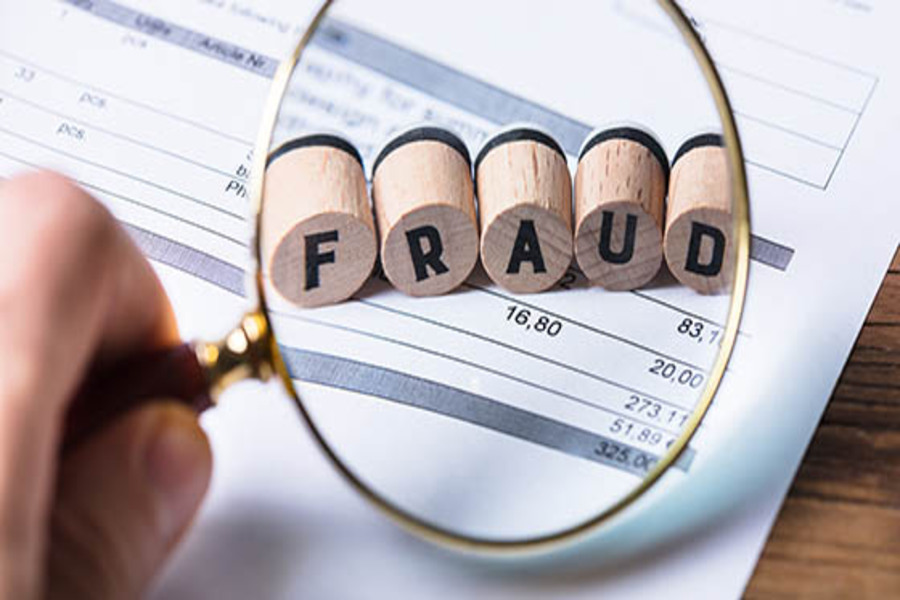Have you ever wondered whether the photo or video you’re viewing, the audio you’re listening to or the article you’re reading is real? Artificial intelligence (AI) can make the line between authentic and inauthentic hard to determine. For fraud perpetrators, the ability to create deepfakes, voice clones or machine-generated communications can make their scams far more compelling — and effective. Although using AI for criminal purposes is a clear-cut abuse of the technology, it’s possible for well-intentioned businesses to violate the Federal Trade Commission (FTC) Act. Sec. 5 of the FTC Act, “Unfair or Deceptive Acts or Practices” prohibits any material representation, omission or practice that’s likely to mislead consumers under ordinary circumstances. Here’s how to reduce the risk of violations. Limiting the technology’s risk Using AI can...

Asset misappropriation schemes make up more than half of all occupational fraud schemes, according to the Association of Certified Fraud Examiners. It’s a broad category that includes everything from skimming cash to stealing inventory to paying “ghost” employees. One hotspot for asset misappropriation is the accounts receivables department, where dishonest staffers could potentially divert customer payments for their own use. If you don’t have strong internal controls for receivables, what are you waiting for? Lapping leads The most common form of receivables fraud is lapping, where perpetrators apply receipts from one account to cover misappropriations from another. For example, rather than credit Customer A’s account for its payment, a thief may pocket the funds and later post a payment from Customer B to A’s account, Customer C’s payment...
According to S&P Global, there have been at least 230 corporate bankruptcy filings thus far in 2023 (through early June). That’s more than twice the number of filings over the same period in 2022. Such growing numbers represent bad news for the companies involved, obviously, but also potentially for their vendors, customers and other business partners. Although bankruptcy can be a valid business tool, it can also enable dishonest business owners to cheat their creditors and then launch a new business. Do whatever you can to steer your business clear of these “phoenix” companies. Driven into the ground Phoenix companies earn their name because they rise from the ashes of failed companies, often trading on the goodwill of the original businesses. Here’s how a phoenix company scheme might...
Expanding operations into foreign countries can help U.S. businesses reduce labor and operating costs. It can also provide them with access to new markets and potentially higher profits. You may be attracted to a country by a plentiful labor supply, significant tax benefits or government incentives. But, beware: Some foreign business environments present serious fraud risks. Before you make the decision to cross borders, familiarize yourself with the country’s culture and laws. Threats everywhere Corruption is a business risk in every country, but in some countries, it’s omnipresent. For example, if you want to build a factory, you could encounter officials who expect gifts to “grease the wheels” or local politicians who are accustomed to excessive wining and dining in exchange for their cooperation. If you import...
If you’re considering buying a company, fraud may be the last thing on your mind. Unfortunately, you can’t afford to ignore the possibility that your acquisition target is hiding something — possibly something that will have negative financial and legal implications after the deal is complete. To ensure the transaction is what it appears to be, acquaint yourself with the issues and include a forensic accounting expert on your deal team. Look at the numbers During the due diligence process of a merger or acquisition, forensic experts review financial statements for subtle warning signs of fraud. These include excess inventory, a large number of write-offs, an unusually high number of voided discounts for returns, insufficient documentation of sales and increased purchases from new vendors. Another suspicious sign...
Financial statements are central to understanding any business. A public company’s balance sheet, income statement and cash flow statement enable investors, lenders, the media and other stakeholders to value the company, forecast short- and long-term performance, and determine potential credit risk, among other purposes. To ensure analysis of a company is accurate and insightful, financial statements must be reliable. For this reason, financial statement fraud — the exaggeration or outright fabrication of numbers by insiders, such as owners and executives — is extremely dangerous. It can lead to criminal charges, lawsuits, large financial losses and even the company’s demise. It’s critical that your business do everything possible to prevent this type of fraud. More common than you might think Financial statement fraud involving large public companies has received...
Technology has made seemingly everything fast, convenient and easily accessible. This is certainly true of quick response (QR) codes, those ubiquitous symbols you can find on everything from restaurant menus to product packages to advertisements. When you scan QR codes with a smartphone, you can access prices, instructions, product information and even payment apps. But as with most technologies, fraud perpetrators have found ways to exploit QR codes — and steal from consumers and businesses. Here’s what you need to know. How thieves use them Last year, the FBI issued an alert about QR code tampering. Fraudsters replace or alter QR codes so that users are directed to malicious websites or inadvertently download malware onto their devices. Such schemes enable fraudsters to access victims’ account usernames and passwords...
Fraud perpetrated by employees, management, vendors or customers can happen to any business. And if it does, it can take years to recover from the financial losses and reputational damage. In some cases — especially those involving small companies that lack the cash reserves to cushion the blow — a fraud incident can shut down a business. If your business suspects fraud, engaging a forensic accountant to investigate, zero in on a perpetrator and gather evidence that can be used in court, is generally money well spent. In fact, the faster fraud is found, the less your company is likely to lose. The Association of Certified Fraud Examiners reports that fraud schemes have a median velocity (or rate at which financial losses pile up) of $8,300...
Recently, the Financial Crimes Enforcement Network (FinCEN) told U.S. financial institutions to exercise caution when processing paper checks because they might be fake. Paper checks? Didn’t those go the way of the dodo? Jokes aside, electronic transfers have indeed replaced paper checks for many consumer and business payments. Yet paper checks are still used at many businesses and check fraud has been increasing. According to FinCEN, banks reported 680,000 check fraud incidents in 2022, almost double those reported in 2021. The U.S. Postal Service has seen similar rises in mail theft, particularly a higher incidence of criminals breaking into collection boxes and robbing postal carriers to obtain paper checks. Even if your business conducts most financial transactions electronically, you should protect against possible check fraud. Why thieves like...
With billions of users worldwide, social media platforms can be a breeding ground for illicit activity — from simple identity theft to sophisticated and wide-ranging fraud schemes. Here’s an overview of some of the most common social media scams and tips to help prevent you or your business from becoming a fraud victim. Crooks find opportunities As with email, social media messages can trick users into clicking links and providing sensitive information, such as their usernames, passwords, Social Security numbers and financial account numbers. “Romance” scammers also use social media to pose as potential partners, manipulate the emotions of victims and then steal from them. Or bad actors may contact users about fake investment opportunities (particularly involving cryptocurrency), illegitimate contests, bogus lotteries and false inheritances. To gain the...











